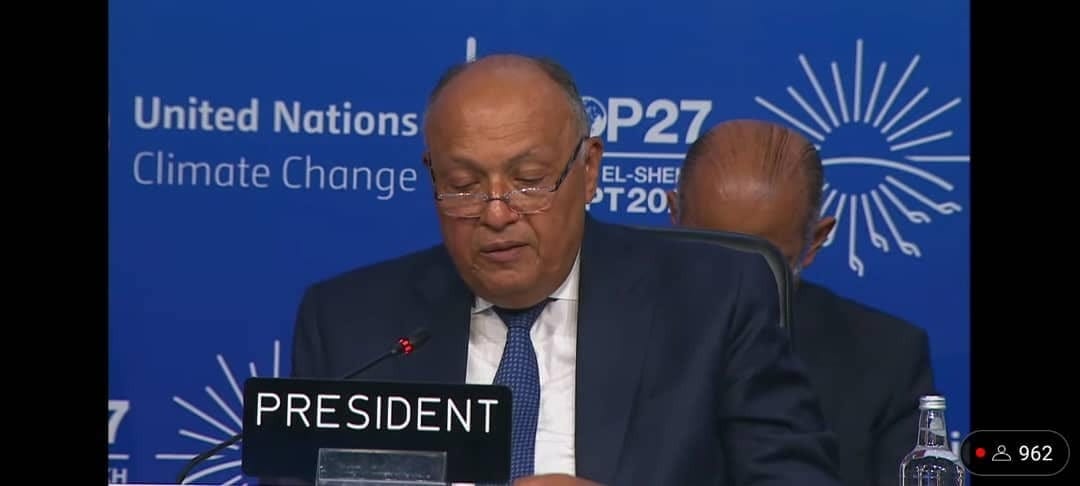Loss, Damage Financing on COP 27 Official Agenda
The primary goal of loss and damage financing is to cover damages that are not covered by disaster risk reduction, adaptation, or mitigation.
Sharm El-Sheikh, Egypt: The item on loss and damage financing has been formally added to the agenda of this year's 27th Conference of Parties (CoP 27), but another that seeks to recognize the African continent as a special needs and circumstances region has been dropped for the seventh time, prompting outright condemnation from African climate activists and civil society groups.
Although the agenda for loss and damage financing was stymied in Glasgow last year, the African group and civil society organisations have consistently pushed for its inclusion on the agenda to formally advance a discussion on how countries experiencing irreversible losses due to adverse climate change can be compensated.
The primary goal of loss and damage financing is to cover damages that are not covered by disaster risk reduction, adaptation, or mitigation.
At this stage, the "breakthrough" doesn’t mean much following an announcement by newly elected COP27 President Sameh Shoukry and Egypt’s Foreign Minister on Sunday during the opening plenary that the talks would be constructive and focused on "cooperation and facilitation" rather than "liability and compensation."
He said delegates are aiming to reach a conclusive decision on loss and damage "no later than 2024."
Shoukry told delegates that this year's COP is taking place in a world where political turmoil is casting a long shadow over all nations and has resulted in energy and food crises.
"Such challenges should be no reason to delay our collective effort to fight climate change. It is inherent in us all in Sharm El Sheikh to demonstrate our recognition of the magnitude of the challenges we face and our steadfast resolve to overcome them," he said.
In response to the cancellation of the "Special Needs and Circumstances of Africa" agenda item, the COP 27 presidency promised to facilitate informal consultations with the African Group and other stakeholders before reporting back.
The Pan African Climate Justice Alliance (PACJA), Africa's largest CSO movement on climate change, issued a statement warning parties to prioritise Africa's interests.
''This will not only be a disappointment but an injustice of disproportionate magnitude for the people at the frontlines of climate change impacts, who expected the conversations happening in Africa to resolve contentious issues that have remained an obstacle to a deal that assures our people of survival," reads part of the statement.
Africa, according to Minister of Natural Environment and Resources Eisenhower Mkaka, believes that this COP should focus on turning texts, commitments, and pledges into action.
"We call this the African COP. The emphasis is on implementation. We have had so many pledges from the previous COPs. We feel it is time we realized those promises. It does not make sense to continue pledging or getting pledges from those that have contributed greatly in a big way to climate change," Mkaka said.
While developed countries are pleased with their promises, the Minister stated that developing countries must still deal with the multiple effects of climate change.
Malawi has yet to repair 129 megawatts, or 30% of total national grid power, which was lost after floods caused by tropical storm Ana in February this year damaged parts of the Kapichira power plant.
The focus of world leaders has now shifted to the Sharm El-Sheikh Climate Implementation Summit, which began on Monday and will last two days.
The talks will revolve around specific themes such as just transition, food security, innovative climate and development finance, investing in the future of energy, water security, climate change, and climate sustainability for vulnerable communities.





